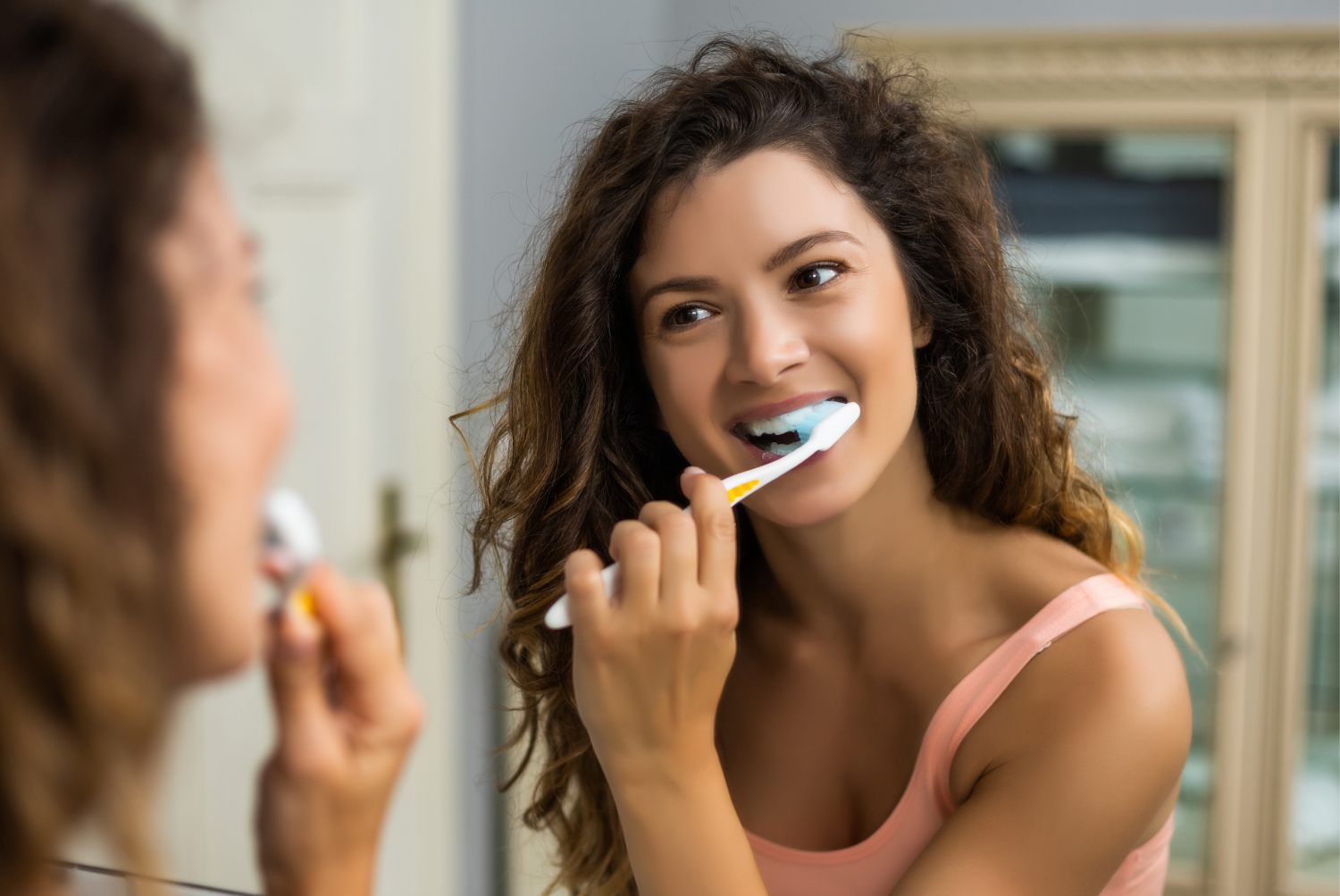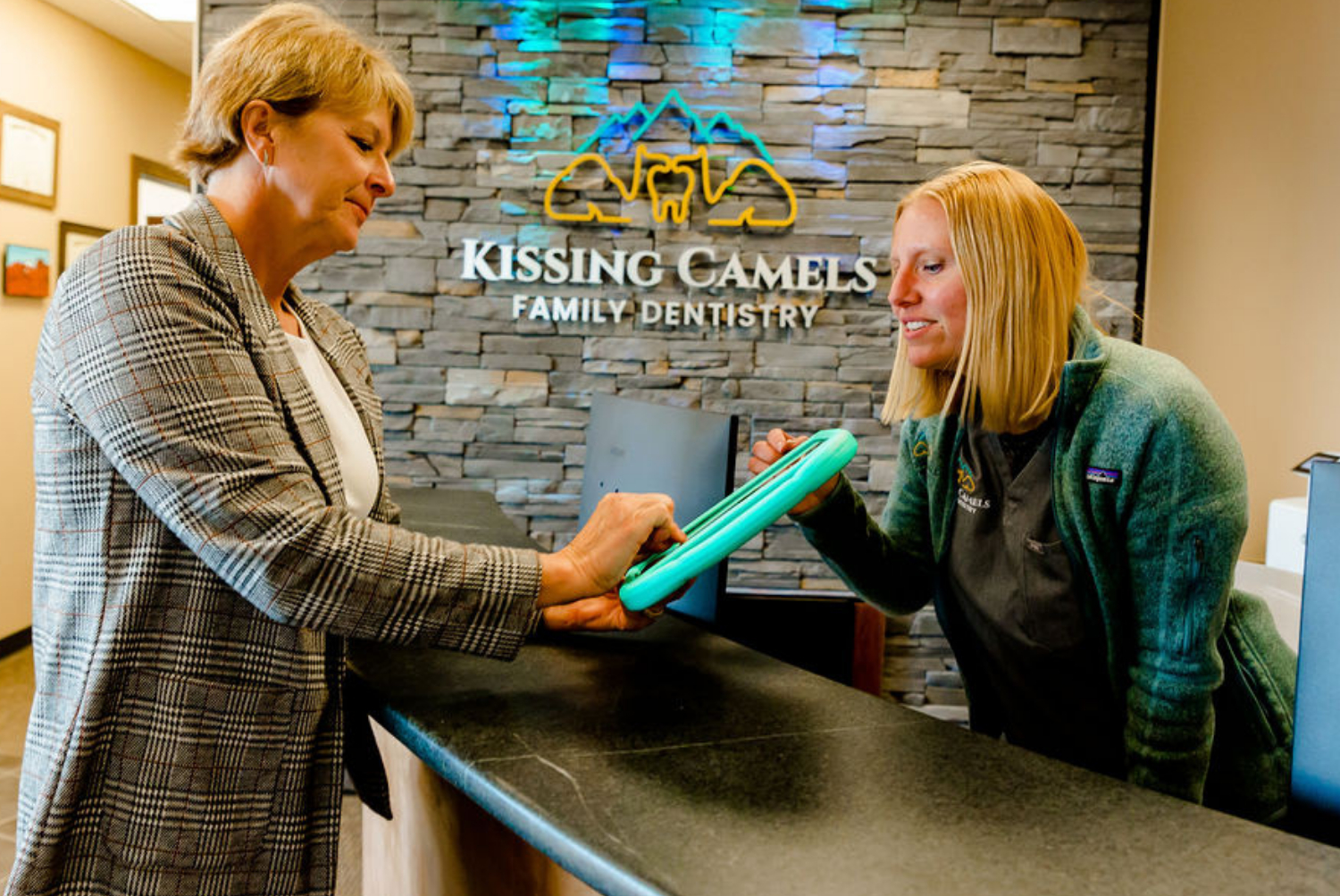Invisalign Tips
Invisalign Tips
Invisalign Tips From Your Dentist in Colorado Springs
Millions of people have been able to overcome their orthodontic issues with Invisalign. With Invisalign, pressure is applied to your teeth through a series of clear plastic aligners, and they are progressively shifted into appropriate alignment, resulting in a straight, even smile you can be proud of. Below, our cosmetic dentist in Colorado Springs shares our Invisalign Tips.
Wear Your Aligners
The most common error is just failing to wear your aligners on a regular basis. So, the idea is to try to obtain as close to 22 hours each day as possible. Our dentist in Colorado Springs explains that if you keep your aligners out for too long, the treatment process may be prolonged. Or, results may be hampered. Thus, wear your aligner trays as much as possible during the first two days. We advise only removing them just to brush and floss your teeth.
Replace Your Aligners on Schedule
Our dentist office in Colorado Springs will offer you a schedule for changing your aligners and the sequence in which they should be replaced. Typically, each set is worn for two weeks. We advise against attempting to speed up your treatment by moving to the following set of aligners too soon, since this may result in a longer overall treatment term.
Protect Your Tongue
Sores are frequent early in the journey and at the start of new tray cycles. This is due to the plastic edges of your clear aligners, but your mouth will toughen up. Additionally, to hasten this toughening, we recommend using Invisalign wax to cover sharp edges and rough regions. Below, our Invisalign Colorado Springs experts share this method:
- First, take a small pinch of wax.
- Then, roll it between your fingers into a shape.
- Next, apply it to the hot areas.
- Lastly, if your retainers have a particularly rough or jagged region that wax cannot conceal, you may need to have your dentist in Colorado Springs file them down for you.
A bottle of peroxide-based mouthwash is also an excellent idea to keep in your medical cabinet. It is carefully created to heal minor oral irritations during orthodontic treatment. Thus, it relieves teeth and gum pain with a refreshing, frothy effect that works. You’ll be pleased you did if you keep a bottle in your medicine cabinet!
Address Any Discomfort
Invisalign may cause discomfort in their teeth and jaws due to it. Clear aligners work by forcing your teeth into their proper position. Our friend, Dr. Kacos, best dentist in Shreveport LA, shares that he advises his patients to undertake chewing exercises several times a day and every time they replace their trays. These exercises not only seat your trays and help them “track” according to your treatment plan, but they can also provide Invisalign pain relief.
Chewing offers a pleasant massage effect for your gums, promoting nutrient-rich blood flow to your mouth. Increased blood flow helps as a natural pain reliever, and chewing activities assist your trays in fitting snugly for optimal tooth mobility.
Safely Remove Your Clear Aligners
When you remove your invisible braces with our favorite aligner removal tool, stay safe and sanitary. The intentional design, small enough to fit in your retainer case, so you always have it handy, also makes it simple to use.
Contact Kissing Camels Today for Invisalign Treatment
Lastly, it’s crucial to know that Invisalign is less capable of treating major issues with your teeth’s alignment and jaw position. Thus, it may not be the ideal option if you have highly crooked and crowded teeth. Or, if you have major bite difficulties. As a result, for these severe orthodontic difficulties, traditional braces may be required.
To find out if you are a good candidate for Invisalign treatment depending on your orthodontic needs, schedule a consultation with us. Our specialists can analyze your mouth. Then, we will determine if Invisalign orthodontic treatment is correct for you.











